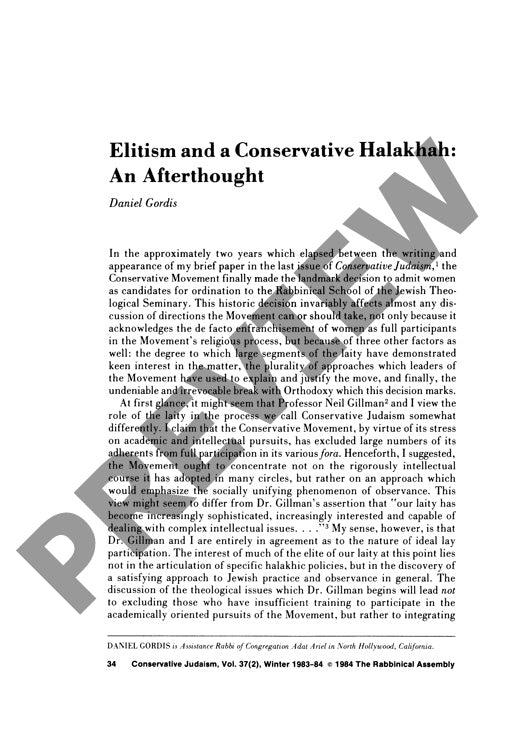Elitism and a Conservative Halakhah an A
Couldn't load pickup availability
The Conservative Movement's landmark decision to ordain women as rabbis marked a decisive turning point that would reshape both Conservative Jewish law (halakhah) and theology. By breaking definitively from Orthodox Judaism, this watershed moment opened new possibilities for lay participation in Conservative Jewish intellectual life while establishing clearer denominational boundaries. Through theoretical analysis of movement dynamics and theological development within American Conservative Judaism, and engaging particularly with Neil Gillman's scholarship, this research reveals three primary impacts of women's ordination: an irreversible doctrinal split from Orthodoxy, the emergence of diverse theological justifications encouraging pluralistic engagement, and the crystallization of a distinct Conservative identity that appeals to committed adherents. Rather than indicating institutional weakness, the resulting theological pluralism within unified observational practice strengthens the movement by enabling broader participation while maintaining coherent religious identity. Conservative Judaism's future vitality depends on developing distinctive observance patterns that unify diverse theological approaches, with women's ordination serving as a catalyst for this essential denominational self-definition process.

More Information
-
Physical Description
-
Publication Information
Published 1983-1984
ISBN
-
Publication Credits
Daniel Gordis

